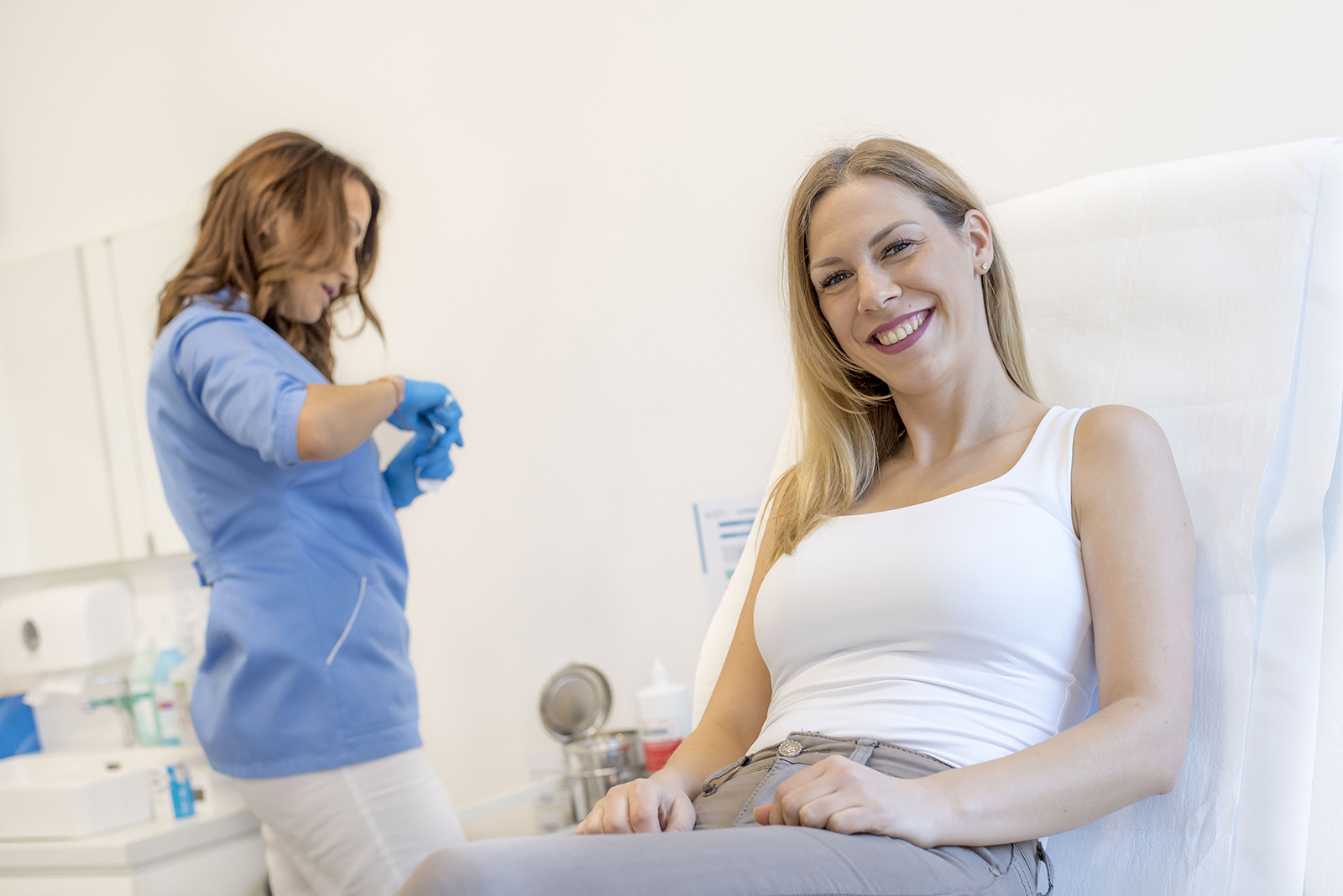When embarking on hormone replacement therapy (HRT), curiosity about the HRT effectiveness timeline is common. Many wonder how long does it take HRT to work. These therapy results promise relief during menopause's challenging phase. Setting expectations with HRT progress requires understanding that experiences differ greatly.
The timeframe for the effects of HRT varies widely. Dosing levels and individual body responses are crucial in the HRT impact timeline. Understanding common timelines helps in forming realistic expectations and facilitates discussions with healthcare professionals as you start estrogen replacement therapy.

Key Takeaways
- Starting HRT requires patience as your body adjusts and responds to treatment.
- Initial HRT effects can be noticed within weeks, but full benefits may take longer.
- Regular medical consultations are crucial to assess and tailor your HRT plan.
- Adverse reactions, if any, should be promptly discussed with your healthcare provider.
- Understanding the efficacy of HRT entails monitoring symptom relief over time.
Introduction to Hormone Replacement Therapy and Its Goals
Starting hormone replacement therapy marks a significant phase for many women facing menopause. It's vital to understand the basics of HRT and the options available. Undertaking HRT is a proactive measure to lessen the impact of menopause on your life, but it's important to grasp what HRT entails and its functioning. Let's explore the key points.
Understanding the Fundamentals of HRT for Menopause
HRT compensates for the hormones your body no longer produces in sufficient quantities during menopause, mainly estrogen and progesterone. The choice of when to begin HRT and its form depends on your health background and symptom severity. Healthcare professionals play a critical role in determining the suitable type of HRT for you. They explore alternatives like HRT patches, pills, creams, and gels.
Goals and Indications of Hormone Replacement Therapy
HRT's main objective is to ease menopausal discomforts from hormone imbalance. Through estrogen supplementation, it targets to alleviate hot flushes, night sweats, and vaginal discomfort. These symptoms can drastically lower life quality. HRT also aims at preventing osteoporosis by hindering bone loss that accelerates during menopause.
Deciding on HRT involves considering symptom relief and overall improvement in well-being. For women with a uterus, progesterone is typically included to prevent complications. The effectiveness of HRT may take time, necessitating patience and open dialogue with your menopause specialist. Many women notice a significant enhancement in their life quality within a few weeks of starting treatment, ushering in a period of revitalization.
Type of HRT | Estrogen Component | Progesterone Component | Main Indications |
|---|---|---|---|
Estrogen-only Therapy | Estriol, Estradiol, Conjugated Equine Estrogens (CEE) | N/A (usually for women without a uterus) | Vasomotor symptoms, Genitourinary syndrome, Osteoporosis prevention |
Combined Estrogen-Progesterone Therapy | Estradiol, Conjugated Equine Estrogens (CEE) | Natural Progesterone, Progestins | Vasomotor symptoms, Protection of endometrium, Amenorrhea, Uterine bleeding management |
Localized Estrogen Therapy | Estradiol (topical) | N/A | Genitourinary syndrome |
If you're looking into HRT to address night sweats, halt bone loss, or reclaim your well-being, understanding and recognizing its goals is key. The decision on when to first start HRT should be based on individual symptoms and health status. Each therapy option is customized to your needs. With proper management, HRT can effectively mitigate menopausal discomforts, facilitating a stride towards a more comfortable life phase.
How Long HRT Takes To Work?
When you start combined HRT therapy, a common question is: how long does HRT take to work? Understanding how HRT evolves can set accurate expectations and guide conversations when you speak to your doctor. The journey with HRT varies from person to person, but there's a basic timeline for when you might start to feel a difference.

The starting doses of HRT are usually low, increased gradually to get the right effect. This method allows your body to adjust without significant side effects. While making progress with hormone replacement therapy, wondering about how long after starting HRT treatment to see changes is natural. For some, improvements in symptoms of hormone imbalance like night sweats or mood swings could be noticed within a few days to a few weeks.
For others, seeing when to expect results from HRT might take longer. It might take up to 3 months of HRT to feel the full effects of a comprehensive range of benefits. This period provides enough time for your body to adapt and hormones to impact cellular operations. You might observe incremental enhancements in your general health during this phase.
If there's little change after 4–6 months, it might be time to revisit your treatment plan. Keeping in touch with your healthcare provider is crucial during your hormone journey. Tweaking hormone types, dosages, or consulting menopause experts may be required to find the best suited treatment for you.
While each individual's reaction to HRT medicine is different, there are common steps to follow in the hormone therapy process. Combining patience with mindful observation of your body's reactions is key to customizing your progress.
Recognizing the Signs of Hormone Replacement Therapy Progress
Beginning hormone therapy can feel like exploring unknown territories. It's vital to recognize successful hormone replacement therapy milestones while seeking relief from age-related hormone changes.
Identifying Relief from Common Menopausal Symptoms
HRT works notably to provide considerable relief from disruptive menopausal symptoms. Early on, you may notice a reduction in hot flashes, which many women find challenging. Additionally, less vaginal discomfort signifies a shift towards comfort. For targeted relief, your healthcare provider might suggest a hormone cream.
Long-Term Improvements: What to Expect with HRT Progress
The benefits of HRT go beyond just easing symptoms; they promote lasting health enhancements. When correctly administered, HRT can help transform the menopausal phase into a period of renewal. You will experience fewer mood fluctuations and better sleep, indicating a positive health outlook.
Menopausal Symptom | Before HRT | Improvement with HRT |
|---|---|---|
Hot Flashes | Frequent and Severe | Reduced Frequency and Intensity |
Vaginal Discomfort | High | Noticeable Relief |
Mood Instability | Common and Disruptive | Improved Stability |
Sleep Disturbances | Regular Occurrence | Improved Sleep Quality |
Maintaining open communication with your healthcare provider is crucial. They adjust your dosage based on your experiences and progress. Even though the journey may have challenges, personalized care ensures you can overcome menopausal symptoms effectively.
Assessing HRT Effectiveness Timeline: From Start to Full Impact
Starting hormone replacement therapy is a pivotal moment in combating menopause symptoms. When you're feeling common symptoms like poor sleep, irritability, depression, weight gain, and more, that's when it's best to contact your doctor to discover the root cause of your symptoms and create a treatment plan to start forms of HRT. Understanding that the therapy progresses through stages toward effectiveness is vital. This journey involves key phases from the initial step to realizing comprehensive benefits.
Early Phase: Initial Changes and Adjustments in Therapy
Within the first weeks of HRT, signs of your body adapting might appear from the steady stream of hormones released in your body. This phase could bring noticeable, albeit minor, changes. Possibly, you may experience a decrease in hot flashes or enhanced sleep quality. Essentially, this time is about acclimating to taking the medicine and beginning hormonal balance recalibration.
Mid-Term Evaluations: Recognizing Hormone Therapy Results
At the three-month mark, evaluating the progress of HRT is advisable. This evaluation gives a better perspective on the therapy's compatibility with your physiological needs. If improvements are lacking, discussing alternatives with your doctor is critical. They might adjust your treatment to align with your goals more closely.
Long-Term Outcomes: Duration to See Significant Changes
Long-term patience is crucial for discerning HRT's full impact, which might take months to years. Individual responses to hormone therapy differ greatly. Continuous assessment and open dialogue with your doctor are essential during this time. Recognizing it may take months to achieve stability aids in maintaining realistic expectations and optimism.
Frequently Asked Questions
How long does it typically take HRT to work?
The response to hormone replacement therapy (HRT) differs for each person. Some notice changes in a few weeks. However, up to 3 months might be needed for full effects. Consulting your healthcare provider is advised if there's no improvement after 4–6 months.
What are the primary goals of hormone replacement therapy?
The objectives of hormone replacement therapy include easing symptoms of menopause and hormonal decline. It restores estrogen and progesterone levels. Main benefits are reducing hot flashes, treating menopause-related conditions, and preventing osteoporosis by maintaining bone density.
What should I expect after starting HRT?
Post-HRT initiation, expect alleviation in menopausal symptoms like fewer hot flashes and improved sleep. Mood stabilization may also occur. Some effects appear within weeks, but achieving full benefits can take months.
How will I know if my HRT is effective?
Effectiveness of HRT manifests as relief from menopausal symptoms. Your healthcare provider's assessment, based on symptom relief and side effects, is paramount for determining its success, beyond just hormone levels.
Are there side effects to be aware of when starting HRT?
Initial HRT may cause side effects like breast tenderness, nausea, and headaches. It's crucial to report these to your healthcare provider for possible treatment adjustments, ensuring comfort and effectiveness. The most severe side effect is that it can increase the risk of breast cancer.
Can the duration of hormone therapy vary among individuals?
Indeed. The response to HRT varies widely; some find relief quickly, while others need more time. Some people may feel full benefits in 3 months, while others may take longer due to individual health factors.
How often should I follow up with my doctor once I start HRT?
Post-HRT, check-ins with your doctor are critical. Initially, appointments should be within the first few months, then periodically as advised. They are essential for monitoring progress, managing side effects, and adjusting dosages if necessary.
What happens if I miss a dose of my HRT medication?
Missing an HRT dose requires taking it as soon as remembered unless the next dose is near. Avoid doubling doses. Consult your doctor for guidance on missed medications.
